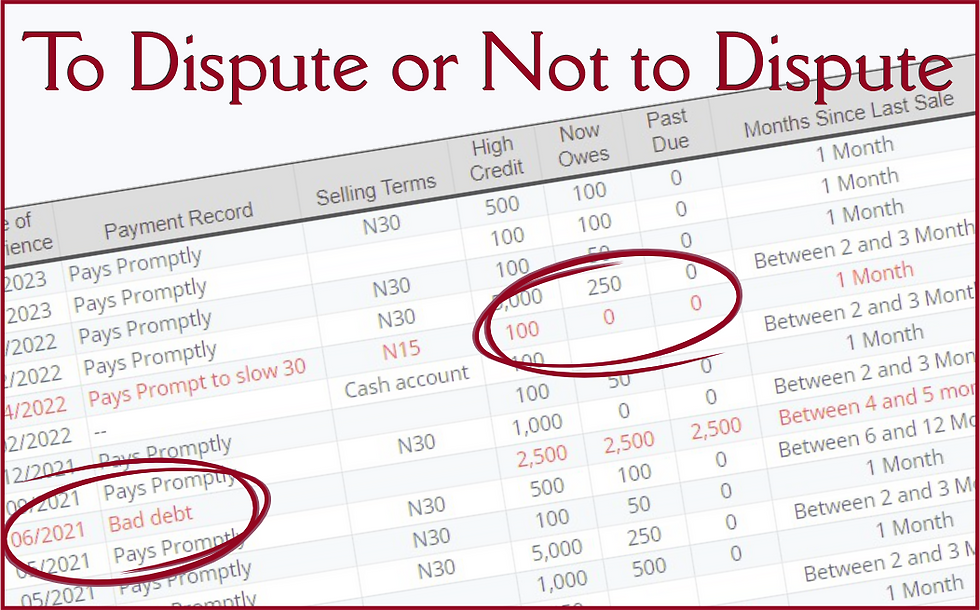NOTHING PERSONAL
- Joy Greenwood
- Mar 31, 2015
- 2 min read
Updated: Jan 26, 2022
One of the biggest mistakes people make in small business is the failure to separate their personal credit and assets from their business credit and expenses. Few realize the impact of that oversight begins at the most basic level where credit begins – at the bank. Failure to establish a business bank account in the company name, address, and phone number is the single weakest link in the whole of the small business credit process.

So who’s getting credit for your positive payment habits?
If you pay your business expenses with a personal credit or debit card they are considered business expenses, albeit paid for with your personal credit, so, in most cases, those payments will not impact your business credit profile. While most small businesses are struggling to establish a credit history for their business, they fail to recognize that business credit actually can be established fairly easily as a by-product of how they pay their existing expenses. They also fail to realize that they may not actually be achieving their goals if they are missing this one seemingly unimportant step.
The majority of the payments that reflect in the business credit profile due so as a result of auto-reporting by your vendors, but there is more to building credit than opening an account with your suppliers in the business name. The expenses also need to be paid in the business name. If the vendor is reporting the payment as paid by personal credit or debit card, then it will likely only reflect on the personal credit file.
By-and-large, D&B accepts only business credit expenses into the credit file, nothing personal.
One of the most important steps in establishing your business should also be to establish a resource for the funds you receive from your customers and then expense out to your vendors. While we can all agree, the profits will likely end up in the same pocket, it is very important to establish that your business is the one with the income, and your business is the one with the debt, and thus, your business is the one who should get credit for the responsible way that debt is settled. By opening a bank account in the business name, you are providing your business with a portal to receive and distribute funds, as well as an accurate recording of what was received and where it went from there.
Whether you choose to pay by business check or a debit card associated to that business bank account is an individual decision. Either way, these deposits and payments establish a record of who your business is, who your providers (vendors) are, and help you to maintain an ever-growing file of responsible payment history. Over time, as the length of your history with your bank grows, so does their recognition of your solid banking practices, which opens the door for potential credit options in the future. While a checking account and debit card are not credit, they do lay the groundwork for future credit approvals.
LESSON: There are many small, seemingly insignificant steps required to build business credit the right way, but they all need to revolve around your business income and expenses, the means by which you pay your bills, and the consistency of the data flowing through the process.




Comments